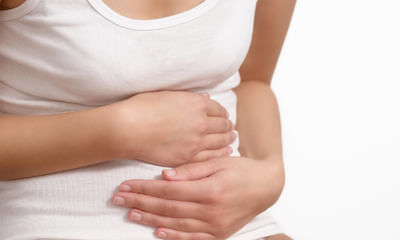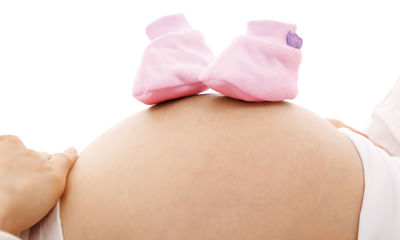Ear Block During Pregnancy
I delivered my baby 5 weeks ago and is now a breastfeeding mother. During pregnancy I had slight stuffy nose, but it led ...
Ask Free Question
You can start other nasal spray. There is no significant evidence on fexofenadine + monteleukast effects on breastfeeding and baby.
2 weeks ago I delivered my baby. During pregnancy I have started nasal congestion and depending on the otrivin adult dro ...
Ask Free Question
Hi, lybrate user, •Inhale steam, once, daily. •Drink , lukewarm water . • Pour mustard oil in nostrils at bed time. Consult , privetly for a faster recovery, till then take, homoeopathic medicine, underlying : @ Natrum mur -5 drops, thrice. •Avoid dust , smoke, scorching sun, cold intake and cold invironment. Tke , care.
My wife is 5 month pregnant and she is going through constipation problem even after she is taking dufalac and dulcolax ...
Ask Free Question
It could be some dietary factor which is causing constipation. I hope anal fissure has been ruled out because it leads to an automatic restraint in the patient towards passing stool. If she could get in touch with me I will like to take all details and then advise appropriately.
My last period was on 1st october which lasted for 5 days. I had an intercourse with my husband on 10th october which I ...
Ask Free Question
According to history there seems to be no chances of pregnancy. Donot use ipill so frequently. Wait and watch please.
Hi doctor. My name is jeena and im 27 years old. I have been suffering with acne for more than 10 years and I have sever ...
Ask Free Question
Pimples, also known as acne, are primarily caused by a combination of factors involving the skin's oil glands, hair follicles, bacteria, and hormonal changes. Here are some of the common causes of pimples: 1. Excessive sebum production: sebum is an oily substance produced by the sebaceous glands in the skin. When the sebaceous glands produce too much sebum, it can clog the hair follicles, leading to the formation of pimples. 2. Clogged pores: the hair follicles or pores can become clogged with dead skin cells, dirt, and other debris. When this happens, it creates an environment where bacteria can thrive, causing inflammation and resulting in pimples. 3. Bacterial activity: the skin is home to bacteria, including propionibacterium acnes (p. Acnes). This bacterium feeds on the sebum produced by the skin and can multiply rapidly in clogged hair follicles, leading to inflammation and the formation of pimples. 4. Hormonal changes: hormonal fluctuations, particularly during puberty, menstruation, pregnancy, and menopause, can increase sebum production and alter the normal functioning of the skin. This hormonal imbalance can contribute to the development of pimples. 5. Diet: while the relationship between diet and acne is not fully understood, some studies suggest that certain foods, such as high-glycemic-index carbohydrates and dairy products, may worsen acne in susceptible individuals. However, more research is needed to establish definitive links. 6. Stress: stress can aggravate acne or contribute to its development. High-stress levels may increase inflammation in the body, leading to acne flare-ups. 7. Medications: some medications, such as corticosteroids, androgenic steroids, and certain anticonvulsants, may cause acne as a side effect. 8. Cosmetic products: certain makeup, skincare products, and hair styling products that are comedogenic (tend to clog pores) can contribute to the development of pimples. It's important to note that the causes and severity of acne can vary from person to person, and treating acne effectively often requires a tailored approach based on individual factors. If you're experiencing persistent or severe acne, it's advisable to consult a dermatologist for proper diagnosis and treatment.
Mam my gf is 19 year old we performed a sex unfortunately my condom become black then I give her unwanted 72 after 7 day ...
Ask Free Question
It should be fine for your female partner now. However if the bleeding persists consult your gyanec. For more details do consult me online.
Hello, i'm on my 18th week pregnancy. I've been using otrivin non stop since the day I got pregnant. If I don't use it, ...
Ask Free Question
Pregnancy and otherwise, any dependence on medicine for day to day affairs is not at all advisable. The cause of blocked noise should be ascertained first. For that it is important to know your medical history and cause of stress if any. If you like you can contact me for detailed discussion and advice.
hello doctor age :20 so basically I had coitus with my partner on 25 feb it was my 7th dap of periods and I had ipill wi ...
Ask Free Question
1) pregnancy is possible only if you had sex after last period or withdrawal bleeding. 2) for other complaints- most of the medical problems need personally taking detailed medical history and examination with the need for reports sometimes so meet concerned doctor-
Sir I had sex with a girl condom blocked after blocked within 15 second stop process I found after sex she is sex worker ...
Ask Free Question
It's important to use protection during sexual activity to prevent the transmission of sexually transmitted infections (stis) and unintended pregnancy. If the condom broke or slipped during sexual activity, there may be a risk of sti transmission, including hiv. Post-exposure prophylaxis (pep) is a medication that can be taken after a potential exposure to hiv to prevent the virus from establishing an infection. It is typically prescribed for a 28-day course and should be started as soon as possible after the exposure, ideally within 72 hours. It's important to take pep exactly as prescribed and complete the full course, as this can help reduce the risk of hiv transmission. While pep can have side effects, it is generally well-tolerated and can be effective in preventing hiv transmission when taken correctly.
After taking injection to evacuate pregnancy, when I gets to the time to see my period, it was not coming out normal the ...
Ask Free Question
1) after drugs, for termination of pregnancy, it is sonography 15 days later which decides the success of treatment. 2) for compliants- most of the medical problems need personally taking detailed medical history and examination with the need for reports sometimes so meet concerned doctor- gynecologist.










